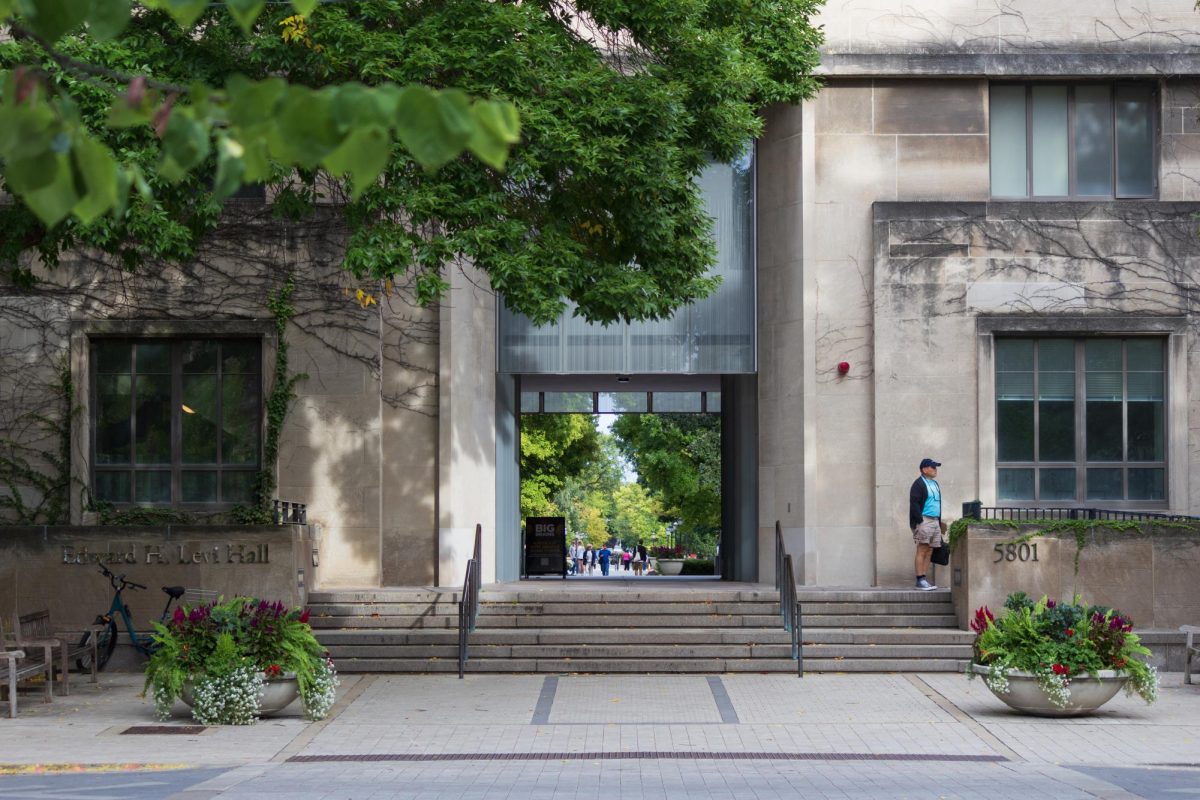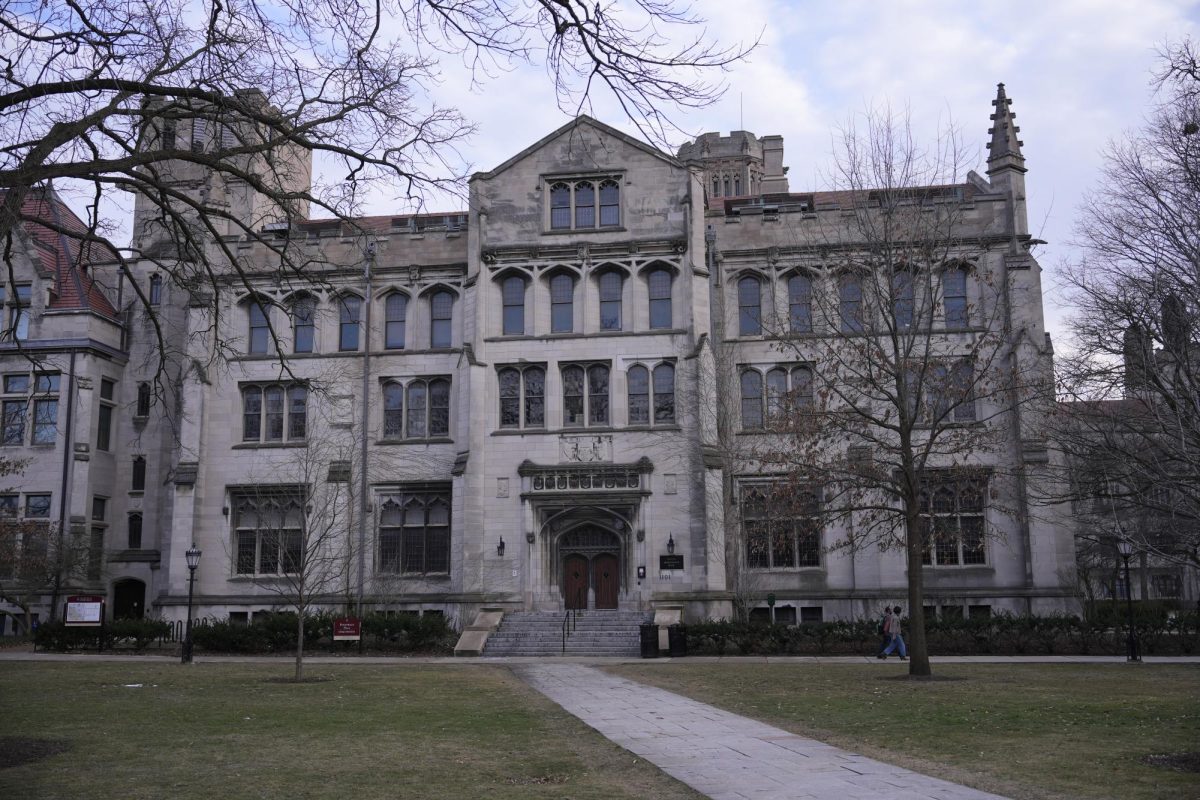We remember very clearly where we were when we found out. Actually, we had both just finished seeing the 10th week University Theater show, The Old Man and the Old Moon. It was a great performance, definitely a feel-good kind of show, which made it all the more surreal when after the play was over, an audience member stood up on the platforms of the stage and shouted out the news, reported by The Maroon: UChicago would be giving students in University housing 11 days to pack their things and vacate the campus. A wave of anxiety hit the room, almost palpably. Friends and couples were clutching each other, crying, calling their families. The truth slowly sank in; it seemed like the announcement should be another part of the play, and not our reality. It was hard to believe this was happening to us.
The next morning, Thursday, March 12, President Robert Zimmer and Provost Ka Yee Lee confirmed what the previous night’s Maroon article had reported. Students are to vacate the dorms by the March 22, or March 29 if they had previously been approved for spring break housing, and classes will be moved entirely online for spring quarter. Many of us—international students with no means of getting home, low-income students with no way to find an apartment on short notice, and those with no happy home to return to—now have to ask ourselves what the next step will be. The official Housing FAQ (released on the afternoon of March 12) explained that international students unable to travel due to restrictions and some students with “extenuating circumstances” would be able to stay. It elaborated that “students with extreme circumstances will receive consideration for possible Spring Quarter housing” (emphasis ours). This is not language that leaves anyone with an actual understanding of whether they will get housing, or when they will find out. Instead, the announcement left students confused and scared. The dorms will provide storage, but they won’t have room for everyone’s boxes. Only some international students are guaranteed housing, and everyone else who needs it are left out in the cold, waiting for a response to their applications.
One undergrad we spoke with, who asked to remain anonymous, said “I didn’t grow up in the greatest of homes. For 18 years I poured all my strength into academic success, because I convinced myself it was my way out. When I made it here, all my dreams had literally come true. And now that I have to go back home for God knows how long…it’s gonna be hell.” A second year, who also asked to remain anonymous, said, “I literally do not have the money to buy a flight home in my bank account, nor the mental and emotional capacity to pack up my room, figure out where I’m living, find funding, and write four papers in the next week. I feel a complete lack of support from Housing and the administration. All answers to my questions have been vague or nonexistent. I know everyone is working hard and times are tough all over. But I’m so scared.” International student Aviya Skowkron told us, “I’m immunocompromised. I’m not rich. I’m not an American. Someone ordered a lot of groceries for me, and it’s been immensely helpful. I can’t afford to buy groceries to self-quarantine for two (or more?) weeks and the help of my friends has been vital.”
The administration has not provided guaranteed housing for most of the students who are displaced. They had not provided guaranteed storage for anyone not planning to move back into Housing in October. They have not alleviated the stress of finals that bears down on us as we scramble to put our lives together. It’s unclear how financial aid, work-study, and other programs will go forward. Answers have begun to come in piecemeal from various places, after hundreds of desperate student emails and phone calls, but there’s a clear lack of centralized, genuine response. When we saw that initial article, no one on this campus was asking “hmm, I wonder what website our online classes will be hosted on?” We were panicking, trying to figure out where we were going to work, eat, and sleep for the next four months. It’s clear that the move to online classes was a necessary step to avoid the spread of the disease, but the University’s solution left much to be desired.
Out of this fear and miscommunication, UChicago Mutual Aid was born. Prior to the official communication explaining that spring quarter would be online, students joined forces and created a Facebook page to help support one another. The next day, we sat with six students on the A-level of Regenstein Library and came up with a plan that continues to provide more concrete housing options to displaced students than the University has. We set up forms to organize people who needed help, and people who wanted to donate, and spread them through social media platforms. We make calls and write emails to anyone who might be able to donate computers, food, storage, or housing, and arrange the logistics of receiving those donations. We are currently in the process of matching those who need housing with those who can provide it, and organizing donated food, clothing, and cleaning products so that they can be distributed. And all of this on our own time, with zero support from the administration. We understand that the administration needed to respond quickly to what is now officially a pandemic, but after seeing a bunch of college students with nothing but laptops and Facebook accounts so quickly pull together staggering amounts of resources, it’s hard to have much sympathy for the University’s failure to address our basic needs. This a story about what the University leadership has left unaddressed, and what we as a community have done to lift each other up in a time of deep crisis. Ultimately, we have been disappointed in the lack of communication from UChicago administrators, but deeply inspired by the support networks created by UChicago undergraduates.
We know managing this crisis has not been easy for administrators, but this isn’t easy for any of us. It’s not easy for the first-years, who have just begun to find their footing on campus, and now have to spend just as much time apart from their new friends as they’ve spent with them. It’s not easy for the fourth-years, whose diplomas are hanging in the balance and who will have to leave campus for good without a sense of closure. It’s not easy for low-income and first-generation students, many of whom have nowhere to go. It’s certainly not easy for those who do not feel safe returning home. But right now, the UChicago student body is showing incredible solidarity under incredible amounts of pressure. As a fourth-year who asked to remain anonymous explained, “This whole thing has made me really frustrated with the University, but also so hopeful about the community. A lot of my friends who don’t go here are shocked that we were able to pull together this system so fast just among ourselves.”
Beyond our gratitude to the undergraduate community at UChicago, we also want to extend enormous gratitude to the professors who have rushed to meet student needs during this time of crisis, despite a lack of administrative support for their decisions. In the space of hours, dozens of faculty members moved their finals online for the sake of the students’ health, or cancelled them altogether. At this University, “rigorous inquiry” often takes precedent, and to an absurd degree, so it’s a relief to see this broad acknowledgement that linear algebra, for example, is not our top priority right now. And in the face of the administration’s failure to address our finals season, or move grading deadlines, it’s absolutely inspiring to see faculty taking it upon themselves to help us get through this.
The COVID-19 pandemic is out of anyone’s hands. There’s no immediate solution, and the University, like many of its peer institutions, has decided to exhibit an abundance of caution in the face of a threat much bigger than itself. But, as the student body on this campus has shown us, that is no excuse to abandon compassion and humanity. That is what we need more than anything right now. Taking spring quarter off-campus was never going to be easy for this school, but the people making that decision needed to have thought a little bit harder about what it would mean to carry it out. These issues were not unforeseeable. The responsibility for dealing with them should not be falling on the shoulders of students, who are pushing through all of their stress and uncertainty against all odds to try and help one another. As we said above, we are not unsympathetic to the difficulty of managing a crisis of this scale in an environment like UChicago, but what has happened—students feeling the need to do the administrator’s job for them—is not acceptable.
Be it from professors, parents, or the students themselves, we have seen an astounding level of compassion and humanity from this community. We, the authors, have never been particularly proud of going to Millikan’s-oil-drop-experiment school, or the splitting-of-the-atom school, or the Milton Friedman school. We are not proud of how the administration has handled communication in the wake of the virus. We are, however, extremely proud to be part of this community at this critical moment in time. For a lot of us, this is one of the worst things we’ve ever had to face. But the love that has grown out of these most unlikely circumstances is incredible. In the midst of this chaotic, terrifying whirlpool of emotions, we can only find solace in our community, and the compassion that we can have for one another, and that is what will give us the strength to get through this.







